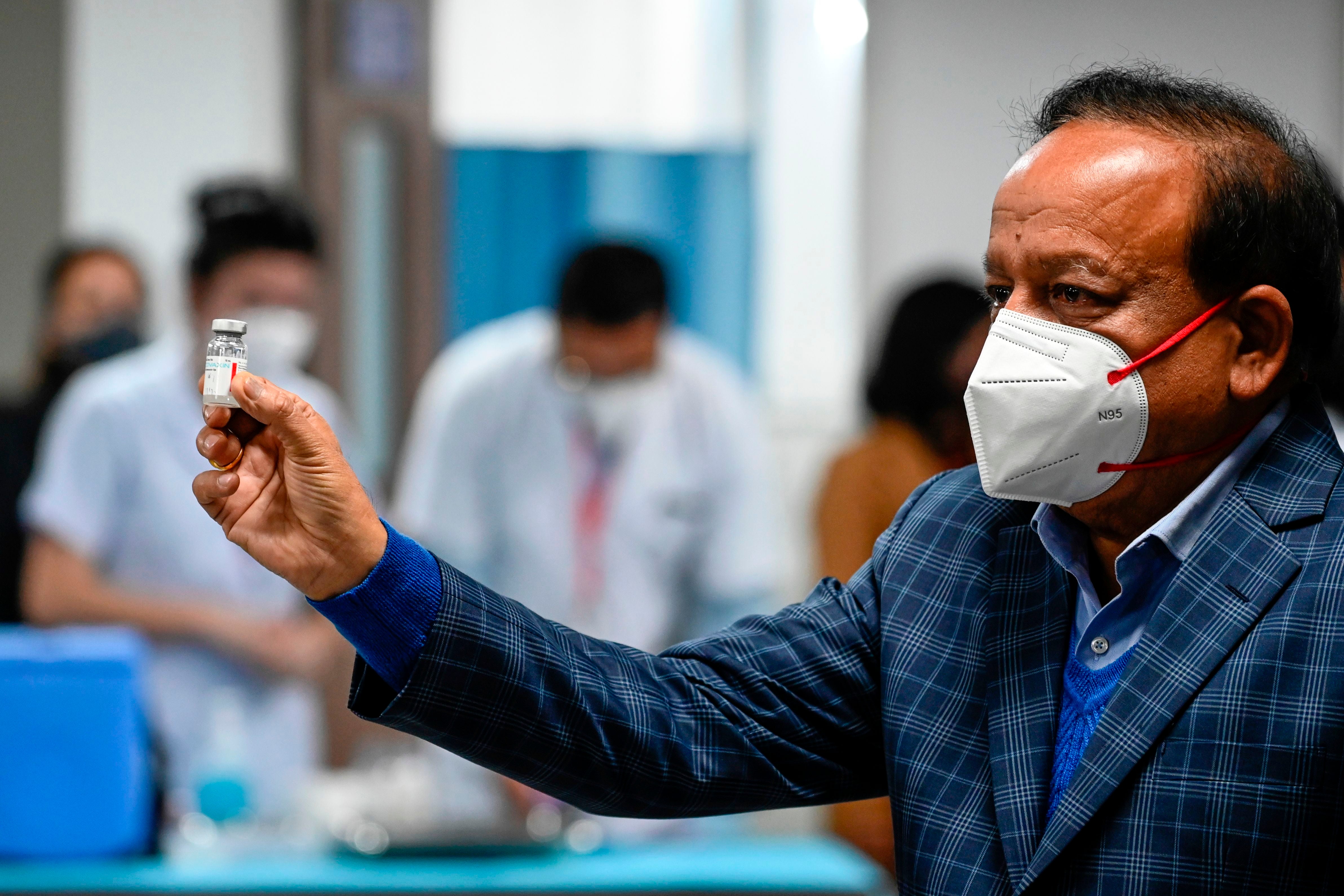Indian health minister resigns ahead of cabinet reshuffle amidst criticism of government handling of Covid
The resignation comes as India is dealing with the second wave of the Covid-19 pandemic

Your support helps us to tell the story
From reproductive rights to climate change to Big Tech, The Independent is on the ground when the story is developing. Whether it's investigating the financials of Elon Musk's pro-Trump PAC or producing our latest documentary, 'The A Word', which shines a light on the American women fighting for reproductive rights, we know how important it is to parse out the facts from the messaging.
At such a critical moment in US history, we need reporters on the ground. Your donation allows us to keep sending journalists to speak to both sides of the story.
The Independent is trusted by Americans across the entire political spectrum. And unlike many other quality news outlets, we choose not to lock Americans out of our reporting and analysis with paywalls. We believe quality journalism should be available to everyone, paid for by those who can afford it.
Your support makes all the difference.India’s health minister Dr Harsh Vardhan on Wednesday submitted his resignation, just hours ahead of a cabinet reshuffle, even as the federal government continued to draw criticism over its handing of the Covid-19 pandemic that has killed more than 400,000 people in the country.
Prime Minister Narendra Modi is expected to soon expand the cabinet, according to reports.
Along with Dr Vardhan, others who have resigned reportedly include information technology minister Ravi Shankar Prasad, environment minister Prakash Javadekar, education minister Ramesh Pokhriyal Nishank, and labour minister Santosh Gangwar.
The government has not yet confirmed the resignation reports or revealed the names of the new inductees.
Dr Vardhan’s resignation is significant because it comes at a time when India is still dealing with coronavirus infections. A few months ago the country’s hospitals had run out of beds and medical oxygen, drawing criticism from people over the handling of the pandemic.
Even as cases have begun to decline from a peak of 415,000 infections in May, experts have warned of a third wave. A report by the State Bank of India said it could hit the country as early as August and peak in September.
The government has been severely criticised by opposition members and a section of the public as the number of cases and deaths rose sharply during the second wave that took hold in April and lasted through May.
Mr Modi, from the ruling Bharatiya Janata Party (BJP), and as well as other political parties had faced criticism for addressing tens of thousands of people at election rallies in the middle of the pandemic.
Mr Modi was called a “super-spreader” by Dr Navjot Dahiya, the vice president of Indian Medical Association.
The government also came under fire after several states in the country reported a shortage of Covid-19 vaccines. Top virologist Dr Gagandeep Kang told NDTV in an interview that India delayed the process of bulk-buying vaccines unlike other countries.
India has only fully inoculated less than 5 per cent of its population, according to a Reuters vaccine tracker, but aims to vaccinate every adult by the end of this year.
While the pace of vaccination has increased in India in recent days, experts have said that it is still below the required rate needed to reach the December goal.
Join our commenting forum
Join thought-provoking conversations, follow other Independent readers and see their replies
Comments